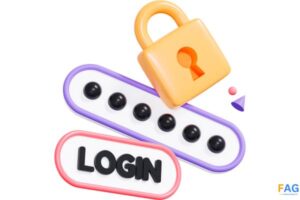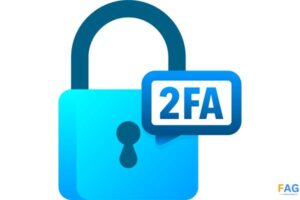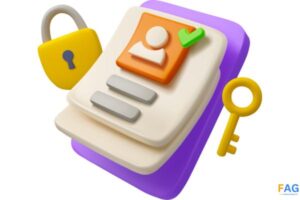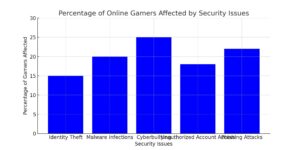Online gaming is a fun and exciting way to pass the time, but it can also put your privacy and security at risk. With the increasing number of online gamers, hackers and cybercriminals are constantly looking for ways to exploit vulnerabilities in gaming platforms and cause a data breach.
One of the best strategies for protecting your online gaming privacy is to use a Virtual Private Network (VPN). A VPN encrypts your internet connection and hides your IP address, enhancing your internet safety by making it difficult for hackers to track your online activity. It also allows you to bypass geographic restrictions and access games that are not available in your region. By using a VPN, you can enjoy your favorite games and stay safe online without compromising your privacy and security.

Another effective strategy to help protect your online gaming privacy is to use strong and unique passwords. Many gamers use the same password for multiple accounts, which makes them vulnerable to cyberattacks; using a password manager can help create and store unique passwords for each account. To prevent this, it is recommended to use a combination of letters, numbers, and symbols, and avoid using personal information such as your name or birthdate.
Additionally, enabling two-factor authentication (2FA) adds an extra layer of security to your accounts, making it harder for hackers to gain access.
Top 7 Tactics to Safeguard Your Online Gaming Privacy

Online gaming is an exciting and fun way to spend your free time, but it can also pose a risk to your online privacy. Hackers and cybercriminals are always on the lookout for vulnerabilities in online gaming platforms to steal personal data or install malware. To keep your online gaming experience safe and secure, follow these top 7 tactics to safeguard your online gaming privacy.
1. Use Strong Passwords

One of the most basic yet effective ways to protect your online gaming privacy is to use strong passwords. Make sure your passwords are long and include a mix of letters, numbers, and symbols. Avoid using the same password across multiple accounts, and change your password regularly to prevent unauthorized access.
2. Enable Two-Factor Authentication

Two-factor authentication adds an extra layer of security to your account. It requires you to provide two forms of identification to access your account, such as a password and a code sent to your phone. This makes it much harder for hackers to gain access to your account, even if they have your password.
3. Be Cautious with Personal Info

Avoid sharing personal details like your real name, address, or phone number. This information can be used by cybercriminals for identity theft or to target you with phishing scams. Be especially careful when communicating with other players, as they may not be who they claim to be, to protect against cyber threats.
4. Check Privacy Settings

Adjust your privacy settings in games to limit who can see your profile and activity. This can help prevent cyberbullying and harassment, as well as protect your personal information. Be sure to review the privacy settings for each game you play, as they may differ from one another.
5. Use a VPN

A VPN can hide your IP address and protect your online identity. This is especially important if you’re playing games on public Wi-Fi networks, as these networks are often unsecured and vulnerable to hacking. A VPN can also help you bypass geo-restrictions and access games that are not available in your country.
6. Keep Software Updated

Always update your games and security software to protect against new threats. Game developers and security companies release updates regularly to fix security vulnerabilities and bugs. Make sure you install these updates as soon as they become available to keep your online gaming experience safe and secure.
7. Be Careful with Downloads

Only download content from trusted sources to avoid malware. Malicious malware can be disguised as game mods, cheats, or other add-ons, so be sure to download these only from reputable sources. Avoid downloading anything from suspicious websites or links sent to you by other players.
| Security Issue | Percentage of Gamers Affected |
|---|---|
| Identity Theft | 15% |
| Malware Infections | 20% |
| Cyberbullying | 25% |
| Unauthorized Account Access | 18% |
| Phishing Attacks | 22% |

Frequently Asked Questions
How can I safeguard my personal information while participating in online games?
Players can safeguard their personal information by taking several measures. They should only download game-related software from reputable sources such as official game stores or developer websites. Players should also avoid using third-party websites that may distribute infected files. It is also a good practice to create strong, varied passwords and enable two-factor authentication (2FA) wherever possible. Players should also avoid revealing personal information in voice or text chat, and stay away from pirated copies of games, as well as third-party boosts and items.
What measures should parents take to ensure their children’s safety during online gaming?
Parents should prioritize security and privacy when their kids play video games online. They should be aware of the financial and safety risks involved in online gaming. Parents should also educate their children about the importance of avoiding revealing personal information in voice or text chat. They should also monitor their children’s gaming activities and ensure that they are playing age-appropriate games. Parents can also use parental control software to restrict access to inappropriate content.
Which practices are most effective in preventing oversharing of personal data in gaming environments?
Players can prevent oversharing of personal data by avoiding revealing their real names, addresses, phone numbers, and other sensitive information in voice or text chat. They should also avoid posting personal information on gaming forums or social media platforms. Players should also be cautious when sharing personal information with other players and only share information with trusted friends.
What are common cybersecurity threats in online gaming, and how can they be mitigated?
Common cybersecurity threats in online gaming include phishing attacks, malware infections, and hacking attempts. Players can mitigate these threats by using antivirus software, keeping their software up-to-date, avoiding clicking on suspicious links, and avoiding downloading software from untrusted sources. Players should also avoid using public Wi-Fi when playing online games as it may not be secure.
How can players recognize and protect themselves from bullying attacks in online games?
Players can recognize bullying attacks by looking out for signs such as name-calling, insults, threats, and exclusion from games or groups. Players should report any bullying incidents to the game’s administrators or moderators. They should also avoid engaging with bullies and block them if necessary. Players should also be aware of the game’s code of conduct and follow it to prevent bullying.
Can you list key strategies to prevent malware infections from online games?
Key strategies to prevent malware infections from online games include using antivirus software. Also, keeping software up-to-date is important. This helps to fix any security vulnerabilities that hackers can exploit. Avoid downloading software from untrusted sources, and avoid clicking on suspicious links. Players should also avoid using public Wi-Fi when playing online games as it may not be secure. Additionally, players should be cautious when using third-party enhancements and pirated games as they may contain malware.










